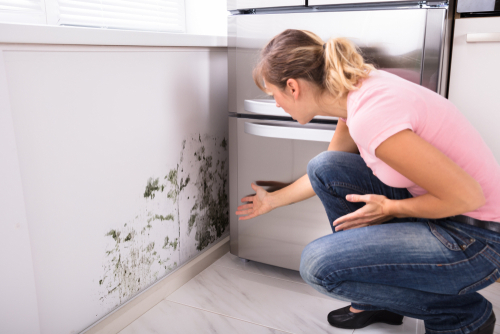Mold is a unique source of damage in the insurance world. Many renters insurance companies are hesitant to list it in their policies, as its cause can be difficult to determine. However, there are distinct occasions when the coverage applies and doesn’t.
How Can I Be Sure Mold Damage Will Be Covered Under My Policy?
Since not all policies cover this cause of damage, you need to do one of the following:
- Search your policy for terms such as “mold,” “mildew,” “fungi,” “mycotoxins,” and “spores” – it is much more likely that you will not have issues filing a claim if mold is specifically referenced in your policy.
- Call your insurance company. This is especially useful even if your policy does not mention mold coverage, as some companies offer coverage endorsements, or add-ons, for an extra charge that will provide coverage you did not previously have.
However, if you only have mold coverage as an endorsement, that may only apply to repairing the structures that the mold grew on – not your personal possessions.
When Would My Policy Cover Mold?
Policies base this coverage on the origin of the mold, not the presence itself. Renters insurance offers its coverage under specific instances known as covered perils.
Common covered perils include:
- Fire
- Structural collapse from the weight of heavy ice, snow, or sleet
- Explosions
- Smoke
- Hail
- Falling objects
- Accidental overflow of water
Insurance adjusters assess claims according to the timeline of events. The timing has to match up for an event to be determined as the cause of mold. If it has been determined that the mold had been there before the covered peril took place, you will not get coverage. You’ll only get coverage for the damage the covered peril caused, not the pre-existing mold.
When Is Mold Not Covered?
You won’t get coverage for mold if it’s not listed in your policy and you don’t have an endorsement for it. It’s also not covered if the mold was the result of flooding. Floods are absent from most policies’ covered perils, and getting coverage for them often requires adding a separate policy specifically for floods. Mold is also not covered if it results from negligence and poor maintenance.
What Can I Do?
Taking measures to prevent mold is better than relying on reimbursement later. You need to make your environment as uninhabitable for mold as possible. Mold thrives in humidity and feeds on dust. It’s especially prevalent in basements. Installing dehumidifiers, checking ventilation, and vacuuming frequently will keep your property mold-free.
Get Your Policy Today
At All Things Insurance, we strive to give you peace of mind for the lowest price. When it comes to protecting your home and belongings, we are at your service to ensure you will have the coverage you need. Call us today at (763) 645-5450.

